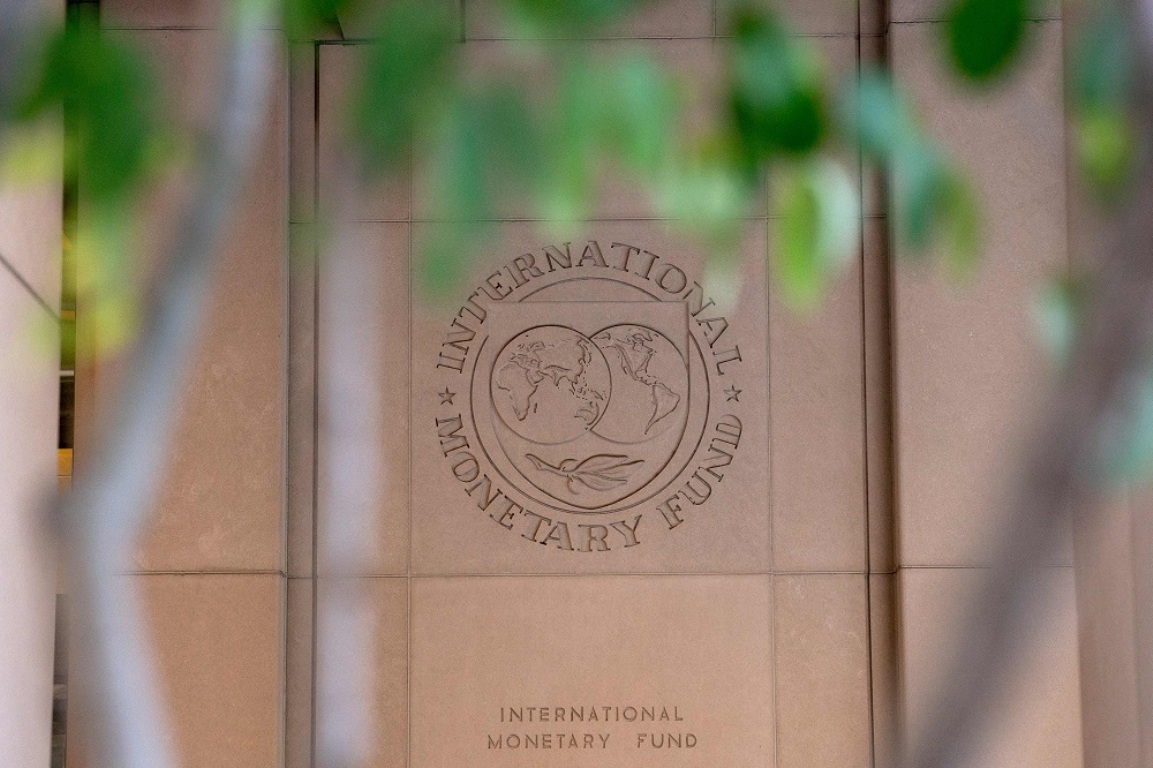WASHINGTON, April 11: The International Monetary Fund slightly lowered its outlook for the global economy on Tuesday, while predicting that most countries will avoid a recession this year despite economic and geopolitical concerns.
The IMF predicted the global economy will grow by 2.8 percent this year and three percent in 2024, a decline of 0.1 percentage point from its previous forecasts in January.
The American economy is expected to grow by 1.6 percent in 2023, up 0.2 percentage point on the IMF's previous forecast. US growth is then predicted to slow to 1.1 percent next year, up 0.1 percentage point from January.
"The global economy is recovering from the shocks of the last few years, and particularly of course the pandemic, but also the Russian invasion of Ukraine," IMF chief economist Pierre-Olivier Gourinchas said in a press briefing ahead of the release of the IMF's World Economic Outlook (WEO) report.
The leadership of the World Bank and IMF hope to use this year's spring meetings to promote an ambitious reform and fundraising agenda.
But their efforts will likely be overshadowed by concerns among member states over high inflation, rising geopolitical tension, and financial stability.
- Advanced economies drag down growth -
IMF also lowers Nepal’s economic growth forecast to 5%

The overall picture painted by the WEO is a gloomy one, with global growth forecast to slow in both the short and medium terms.
Close to 90 percent of advanced economies will experience slowing growth this year, while Asia's emerging markets are expected to see a substantial rise in economic output -- with India and China predicted to account for half of all growth, IMF managing director Kristalina Georgieva said last week.
Low-income countries, meanwhile, are expected to suffer a double shock from higher borrowing costs due to high interest rates, and a decline in demand for their exports, Georgieva said. This could worsen poverty and hunger.
The IMF expects global inflation to slow to seven percent this year, down from 8.7 percent last year, according to the WEO forecasts.
This figure remains significantly above the two-percent target set by the US Federal Reserve and other central banks around the world, suggesting monetary policymakers have a long way to go before inflation is brought back under control.
The IMF's baseline forecasts assume that the financial instability sparked by the collapse of Silicon Valley Bank last month has been broadly contained by the "forceful actions" of regulators on both sides of the Atlantic, Gourinchas told reporters.
But he added that central banks and policymakers have an important role to play to buttress financial stability going forward.
- Germany on brink of recession -
While the picture is one of slowing growth, almost all advanced economies are still expected to avoid a recession this year and next.
Alongside growth in the US, the Euro area is also forecast to grow by 0.8 percent this year, and 1.4 percent next year, led by Spain, which will see 1.5 percent growth in 2023 and 2 percent growth in 2024.
But Germany is now expected to contract by 0.1 percent this year, joining the UK as the only G7 economy expected to enter recession this year.
The picture is more positive among emerging market economies, with China forecast to grow by 5.2 percent this year. But its economic growth is predicted to slow to 4.5 percent in 2024, as the impact of its reopening from the Covid-19 pandemic fades.
India's economic forecast has been downgraded from the previous forecast in January, but it is still predicted to grow by 5.9 percent this year and 6.3 percent in 2024, providing some much-needed stimulus to the global economy.
And Russia is now expected to grow by 0.7 percent this year, up 0.3 percentage point on January's forecast, despite its invasion of Ukraine.
- Poor productivity weighs on medium-term outlook -
Looking forward, the IMF forecasts that global growth will fall to three percent in 2028, its lowest medium-term forecast since the 1990s.
Slowing population growth and the end of the era of economic catch-up by several countries including China and South Korea are a large part of the expected slowdown, as are concerns about low productivity in many countries, according to Daniel Leigh, who heads the World Economic Studies division in the IMF's Research Department.
"A lot of the low hanging fruit was picked," he told reporters ahead of the publication of the World Economic Outlook.
"On top of that now, with the geopolitical tensions and fragmentation, this is going to also weigh on growth," he said.





































